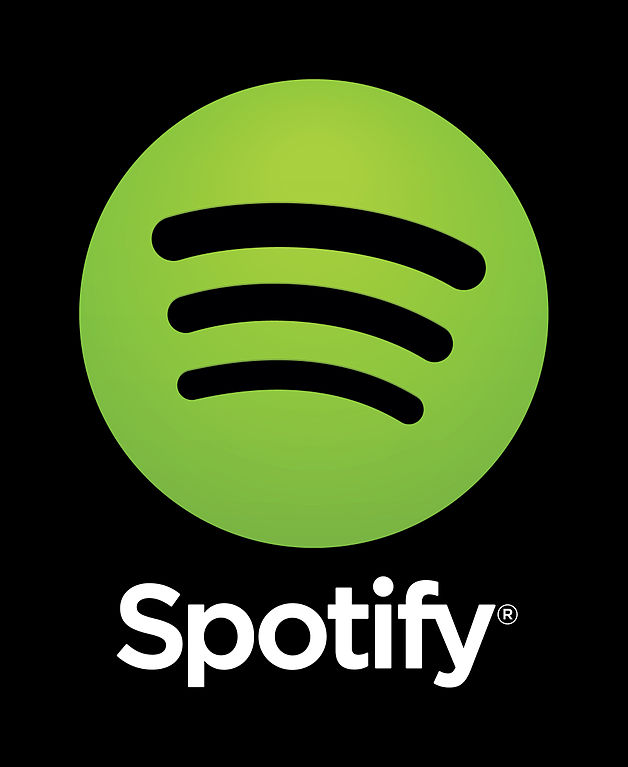Welcome to the Era of the Celestial Jukebox
Spotify is a popular music streaming service.
April 9, 2018
In September 2000, The Atlantic published an article called “The Heavenly Jukebox” and argued about the possibility of technology allowing people to listen to music whenever they wanted online. Just like many intellectuals who ended up changing the course of history, these articles were met with skepticism and disapproval.
The way we listen to music has has changed dramatically over time. From the first piece of music known to man — Hurrian Hymn No. 6 in the 14th century B.C. — to modern day pop music, the way people listen to music has shifted many times. What started with listening to live orchestras ended with streaming music online. Our understanding of music is closely related to industrialisation and capitalization of music, but music has been developing since the first cavemen banged two rocks together.
“With the possible exception of acapella singing, all music generation requires technology, musical instruments are technologies,” Music Business Professor Sam Howard-Spink said. “Technology is not a new thing for music.”
In 2018, streaming music is the go-to service used with more than 100 million people paying for streamed music.
“I use Spotify and sometimes YouTube,” GLS sophomore Madisen Gray said. ”For the amount of songs I can listen to it’s just a better price than downloading. When I was younger I did buy and download music but I also got some music illegally.”
The reason why using torrents or programs, like Soulseek, are not as popular anymore is simply because it is not worth the trouble. Streaming services offer all the music in the world for an affordable price that is accessible to everyone who has a wifi connection and a device to play music on.
“In the ’80s when you had friends you would show them your record collection and that would be reflective of who you were as a person,” Howard-Spink said. “The network changes the dynamic from individual ownership to an access model which says that here is all the information that has been digitised and instead of paying for each individual instance of it, you are going to pay money for access to all of that content.”
The need for more music exceeded the ownership aspect. Streaming has made all kinds of music accessible to all, something CD buyers cannot have. As a CD buyer or even as a music downloader, you have to make decisions about what to spend money on which is an indicator of your personality. With a limited budget, you have no choice to be selective and possessive of your music.
“Spotify use is a completely different dynamic,” Howard-Spink said. “You can listen to something you don’t really care about that much.”
Other students, such as Gallatin junior Robert Mast, find convenience in using pay-per-month streaming services, especially since many allow users to download for when they’re offline.
“It’s just more convenient and easier to have a database of music that [you] can listen to wherever and whenever,” Mast said.
Steinhardt sophomore Laura Sofia Diaz thinks streaming is more popular because of the sharing aspect.
“Spotify used to have this feature that allowed you to share tracks with people via messages, kind of like an inbox-style setup,” Diaz said. “I think people have a need to share what they like, especially when it moves them as much as music can.”
LS sophomore Teddy Voyer believes that music isn’t the only industry with a trend of non-ownership, but in transportation with Uber or with traveling with Airbnb.
“Not just music streaming, but I think we’re living in a sort of revolution right now,” Voyer said.
Steinhardt Professor Mehmet Dede believes that access is important for today’s consumers.
“We live in an access world — going to movies, streaming music, watching cable TV, posting on Snapchat,” Dede said. “When it comes to content, many Americans prefer to ‘access’ content. Owning music, in a way, has become passé. Physical products have not completely disappeared, and may not. But the overall trend is definitely towards accessing content — and if you look at the Millennials and the post-millennials [Generation Z] it becomes even more obvious.”
With student discounts, ads and deals with celebrities, it seems like Spotify and Apple Music have built an oligopoly that they will not be leaving anytime soon.
“In 2016, revenues to the recording industry from streaming subscriptions and advertising was greater than the revenues of the recording industry from the individual sales of either physical goods and downloads,” Howard-Spink said.
With personally curated playlists, and accessibility to all kinds of music, it is no wonder that people prefer streaming.
“The number of downloads being sold is falling through the floor,” Howard-Spink said. “If you can go to Spotify and download the album to your phone anyway, what are we even talking about.”
Read more of the Washington Square News’ Technology Feature. Email Yasmin Gulec at [email protected].




























































































































































